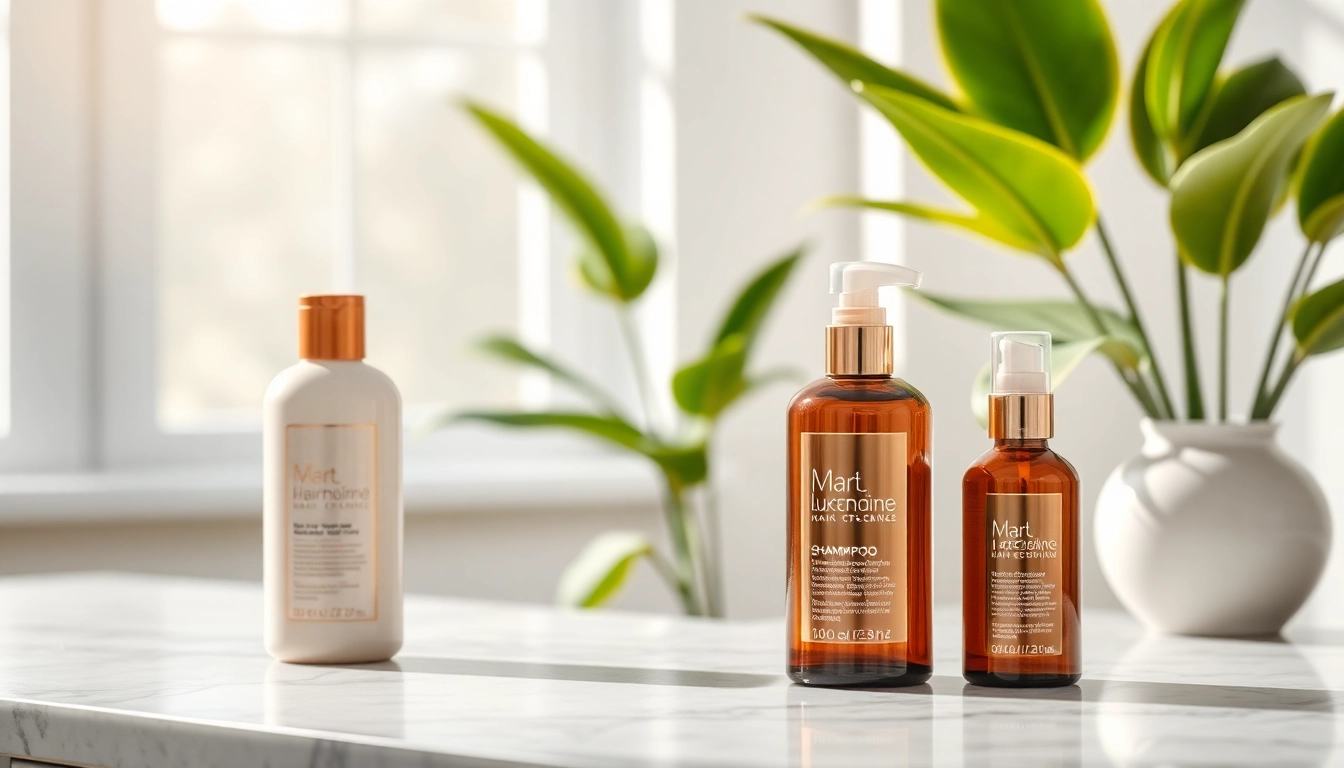
Understanding Hair Thinning
Hair thinning is a prevalent concern affecting millions of individuals across various demographics. It is characterized by the gradual loss of hair density and can lead to considerable distress and self-consciousness. Understanding the fundamental causes, symptoms, and associated lifestyle factors is crucial for anyone seeking solutions to improve their hair health. One of the prominent solutions available is adopting a dedicated hair thinning shampoo designed with ingredients that support hair vitality and thickness.
What Causes Hair Thinning?
Several factors can contribute to hair thinning, including:
- Genetics: Hereditary conditions such as androgenetic alopecia are among the most common reasons for hair loss, often manifesting as male or female pattern baldness.
- Hormonal Changes: Hormonal shifts due to pregnancy, menopause, or thyroid imbalances can significantly affect hair growth cycles.
- Medical Conditions: Certain illnesses, such as alopecia areata, scalp infections, or autoimmune diseases, can lead to patchy or wide-ranging hair loss.
- Medications: Some drugs used for conditions like cancer, arthritis, depression, or heart problems may have side effects that include hair thinning.
- Stress and Trauma: Physical or emotional stress can trigger hair loss, often leading to a condition known as telogen effluvium.
Signs and Symptoms to Look For
Recognizing the early signs of hair thinning can help address the issue before it escalates. Typical symptoms may include:
- Excessive hair shedding, particularly when washing or styling hair.
- Thinning patches on the scalp, including receding hairlines or widening parts.
- Noticeable strand thickness and density reduction over time.
- Increased visibility of the scalp through thinning hair.
Impact of Diet and Lifestyle
Diet and lifestyle choices play a pivotal role in hair health. A balanced diet rich in vitamins and minerals—especially iron, zinc, and vitamins A and D—can help promote stronger, healthier hair. Additionally, factors such as smoking, excessive alcohol consumption, and lack of sleep can adversely affect hair growth and may contribute to hair thinning.
Certain dietary patterns that are high in processed foods and low in essential nutrients can lead to deficiencies that harm hair health. Including foods like spinach, nuts, seeds, fish, and eggs can bolster hair strength and thickness. Moreover, maintaining a healthy lifestyle with regular physical activity can enhance circulation and support overall well-being.
Choosing the Right Hair Thinning Shampoo
Selecting an effective hair thinning shampoo involves understanding your hair’s specific needs and the ingredients that can provide support.
Key Ingredients to Look For
When choosing a hair thinning shampoo, look for these beneficial ingredients:
- Biotin: A vital vitamin that strengthens hair and promotes growth.
- Caffeine: Stimulates hair follicles and may promote increased growth.
- Niacin: Improves blood circulation to the scalp, providing essential nutrients to hair follicles.
- Argan Oil: Moisturizes and nourishes hair, improving both strength and elasticity.
- Peptides: Help to repair and protect hair structure, fostering overall thickness and vitality.
How to Read Product Labels
Understanding product labels is essential when selecting the right shampoo for hair thinning. Here are some tips:
- Look for shampoos that specifically advertise being sulfate-free, as sulfates can strip natural oils.
- Pay attention to the order of ingredients; those listed first are present in the highest quantities.
- Beware of marketing language that may overpromise results; focus instead on scientifically-backed ingredients.
- Check for certifications like dermatologist-tested or hypoallergenic to ensure quality.
Customer Testimonials and Reviews
Reading customer testimonials can provide valuable insight into a product’s effectiveness. Look for reviews that detail personal experiences with a hair thinning shampoo, particularly those discussing the timeline of results and the overall satisfaction level. Genuine reviews often highlight key attributes such as ease of use, scent, and real improvements, helping you make a more informed decision.
Benefits of Sulfate-Free Hair Care
In recent years, sulfate-free shampoos have gained popularity for their gentler formulation. Switching to sulfate-free products can greatly benefit those with sensitive skin or pre-existing hair conditions.
Why Sulfate-Free Matters
Sulfates, while effective at creating lather, can strip hair of its natural moisture and oils, potentially worsening dryness and irritation. Sulfate-free shampoos cleanse without compromising the hair’s natural barrier, thus maintaining hydration and preventing further thinning.
Comparing Sulfate and Sulfate-Free Shampoos
When comparing sulfate and sulfate-free shampoos, consider the effects on your hair and scalp. Sulfate shampoos may clean deeply but often leave the hair feeling stripped and vulnerable. In contrast, sulfate-free options may require a bit of extra effort to lather but ultimately lead to healthier, more resilient hair over time.
Shampoo and Conditioner Pairing for Optimal Results
For maximum effectiveness, pairing a hair thinning shampoo with a complementary conditioner is essential. Look for conditioners that offer moisture without weights down the hair, containing similar beneficial ingredients as the shampoo. This synergy promotes a comprehensive approach to hair health and can enhance your overall results.
Complementary Hair Care Practices
Using a dedicated hair thinning shampoo is just one part of a holistic approach to hair health. Complementary practices can provide a well-rounded impact on your hair’s vitality.
Scalp Health and Treatments
A healthy scalp is fundamental for hair growth. Regular scalp massages can enhance circulation, while treatments, such as exfoliating shampoos or essential oil applications, can further promote health. Engaging in scalp treatments can unclog follicles and create an optimal environment for growth.
Styling Tips to Avoid Damage
To preserve hair integrity, it’s important to adopt gentle styling techniques. Avoid excessive heat from styling tools and opt for air drying whenever possible. Use tools made from materials that minimize breakage. Furthermore, using accessories that are soft and avoid tension on the hair can prevent unnecessary stress and damage.
Supplements and Nutrition for Healthy Hair
Incorporating specific hair-healthy supplements can further bolster your hair’s resilience. Biotin, omega-3 fatty acids, and iron supplements are often cited as beneficial for those experiencing thinning hair. Consulting a healthcare provider can help tailor a supplement plan that addresses individual dietary needs.
Measuring Results: When to Expect Improvement
Understanding the time it takes to notice results is pivotal for maintaining motivation and engagement with hair care practices.
Setting Realistic Expectations
Results can vary from person to person, but generally, noticeable changes may take anywhere from three to six months. Consistency in use and care practices is key to observing tangible improvements in hair density and health.
Monitoring Your Hair’s Health
Keeping a journal to document symptomatic changes, along with photos for visual tracking, can help monitor your hair’s health and establish patterns indicating improvement or the need for changes in your regimen.
When to Seek Professional Advice
If you find little to no improvement over time or if hair thinning worsens, consulting a dermatologist or a trichologist is advisable. These professionals can provide tailored recommendations and, if necessary, explore further treatment options.






